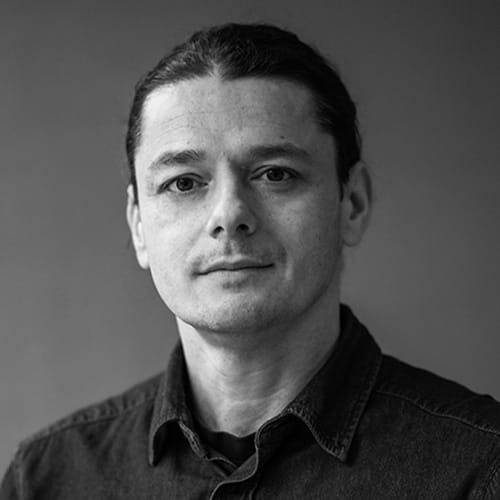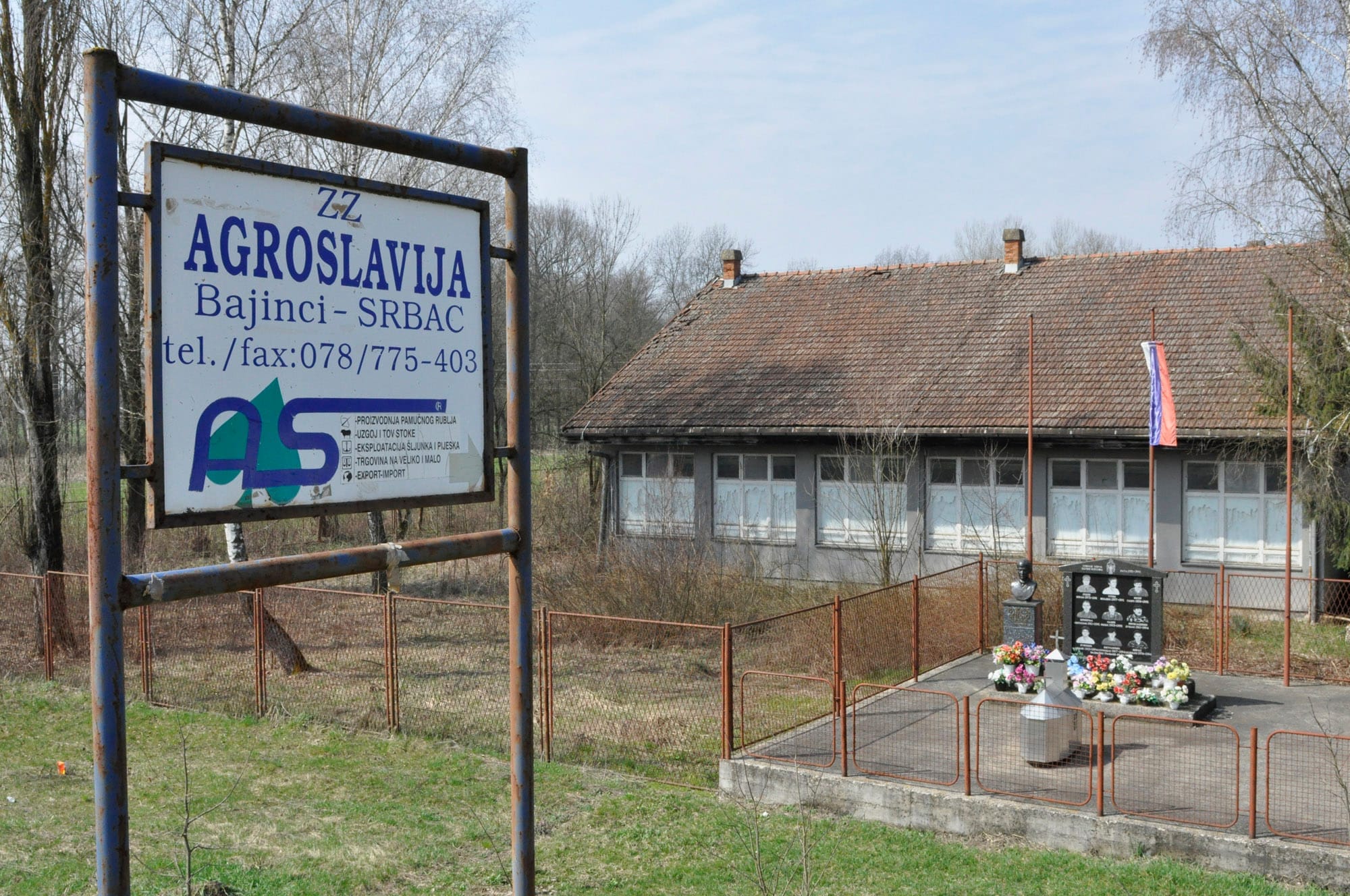Luka Mitraković of Srbac in the Republika Srpska (RS) has paid a heavy price for rejecting a call from Serb Democratic Party (SDS) leaders 10 years ago to donate money and to encourage his employees to work for party candidates.
The party’s influence over the city council insured that his 19-year-old firm, Agroslavija, lost business. He went bankrupt, his 50 employees lost their jobs and he’s been in court for nine years now trying to win relief.
Mitraković’s story illustrates how difficult it can be for individuals to resist party politicians out for votes and funds and what little protection police and courts provide against this kind of extortion.
Due to fear of reprisal businessmen generally do not want this to speak publicly. The Center for Investigative Reporting in Sarajevo (CIN) have talked with the directors of seven companies from Vitez, Novi Travnik, Banja Luka and Sarajevo, with the promise that their identities be protected. All are more or less agree on one thing – you can say no to the demands of political parties, but they can make it harder for you to business in the future. Those who accept the rules can count on the protection and assistance in obtaining public contracts.
Emir Dikić, president of the Board of Directors of Transparency International said that political parties are often asking businessment to provide different services, but that they are unviling to talk about it.
‘The reason why businessment don’t want to talk about it because they see that could be damaging for their future business. Meaning, if I report it now, I can close my company and won’t get other business’, said Đikić. ‘People talk about it. Go to any caffe and you’ll hear, he took this much, the other person took this much, but in the end those are all speculations.’
The latest example comes from Trebinje. Slavko Vučurević, president of the Municipal Bord of the Party of Democratic Progress (PDP) in Trebinje on August filed 22 a complaint against the Alliance of Independent Social Democrats (SNSD). Vučurević alleged that members of SNSD convoked Trebišnjica hydro plant workers threatening them with dismissal if they do not provide 10-50 votes for their candidate. Complaint was filed with the Public Prosecutor’s Office in Trebinje, the Police in Trebinje and the State Investigations and Protection Agency (SIPA).
Marko Mitrović, director of the plant and official of the SNSD in Trebinje, in an interview with CIN said that the accusations against SNSD are obious campaign and that they are inaccurate.
‘SNSD does not need the pressure voters to vote for us in the election. Therefore, I argue that it is not true and I have no knowledge about this’, said Mitrović.
Srbac Case
One businessmen did speak about extortion. Mitraković claims that in April, 2000, Miloš Milenčić, president of the Srbac Municipality Council, a member of the town’s SDS leadership, and at that time a candidate for the RS People’s Assembly, paid him a visit. He wanted 10,000 KM to print billboards.
‘Apart from this, he asked me to lobby my employees to give their vote to SDS’ Mitrakovic said. ‘I refused that. He told me right away that I’d regret that deeply.’
Six months later, in Octorber 2000, a road the firm used to transport sand was suddenly blocked by two tractors. Police told him to be patient, that the blockage will be removed. Five days later, Srbac Municipality Council decided to limit the weight and number of axles on trucks allowed on a road between Razboj and Bajinci. Mayor asked the Municipality’s Zooning Department of implement the decision.
No truck weighting over 8 tons was allowed to use a road. Mitrović’s truck weighted 10 tons. Police fined Agroslavija truck drivers repeatedly – at least 12 times – for violating the new weight limit.
Then, in June 2001, Magistrate’s Court in Srbac fined Agroslavija for unauthorized sand mining. Judge Biljana Lapović wrote in the verdict that the waterwork inspector of Srbac municipality filed charges against the company for excavating the sand from the Sava river without the approval of waterworks. But Agroslavija did have the necessary approval.
Agroslavija had all necessary paperwork. Those more important documents were a decision issued by the Ministry of Agriculture, Forestry and Water Industry which gave its stamp of approval for the sand mining. Mitraković had acquired the approval from the Ministry of Traffic and Communiation and Brčko Port Authority to use the right bank of the Save for disembarkment and warehousing of material.
Ljubomir Marić, then SDS member, told the Center for Investigative Reporting in Sarajevo (CIN) that Milenčić pressured him and Dragoljub Kasagić into hurting Agroslaviju. Milenčić, he said, suggested to him after a party meeting in the municipality building that he should aban the passage of Agroslavija’s trucks.
He said he told him it was not legal or possible to ban only some people from use of a public roadway.
Milenčić who lost his race in 2000 denied Marić’s story but declined to comment further.
Mitraković said that with the Banjinci-Razboj road closed to his trucks he tried using a detour to meet obligations towards his clients and efforts were made to shut down this passage as well. Momo Perić, the president of the Dolina Donja board, through which the trucks passed, said Kasagić asked him to put up barriers.
Kasagić, told CIN he didn’t want to discuss the case.
The Last Ditch Attempt to Save the Company
Mitraković organized signing of a petition in which residents of Bajinci took part. At the list of 240 people almost everyone signed their name to support Agroslavija’s right of work. The municipality paid no heed to this citizens’ action.
It was already too later for Agroslavija at the moment. Agroslavija was unable to neither honor its contractual obligations nor pay monthly installement of 7,100 KM for a 250,000 KM loan the company took to get the sand businesiness started in 1998.
‘In order to be able to use this USAID funds I had to mortgage all my movable and real property. By that time, I had paid some 110,000 KM and I had no problems with delays or anything else’, says Mitraković.
Mitraković said how he had already done a business plan to increase his activities with four more trucks and one ship, which would lead to hiring of hundred more people.
‘With those barriers and bans to work, all my efforts came to nothing’, said Mitraković.
Looking for Justice in the Court of Law
In July 2001, Agroslavija sued Srbac authorities for several hundred thousands KM in damages it said resulted from the obstruction of the firm’s operations. The case is still pending before the Banja Luka Basic Court. The case has been whip-sawed from one court to another including the RS Supreme Court for nine years. A verdict in favor of the municipality at one point was overturned by the Banja Luka District Court.
The RS Supreme in a December 2004 verdict recognized the illegality of the town council’s decisions to stop Agroslavija’s transports. Becaue of that verdict municipal authorities invited Mitraković to reach a settlement in the case the next year.
Mitraković described how the meeting went. ‘There was a five-member strong commission at the meeting between us and the Municipality. We thought that we had reached the solution, but then we heard from the mayor Kojić that he was going to fight with all means available to deny any settlement to Agroslavija, even though he said that his predecessors had made mistakes.’
Mirko Kojić, the head of Srbac municipality and SNSD member told CIN that he didn’t want to comment except to say he was doing everything for the benefit of the municipality.







